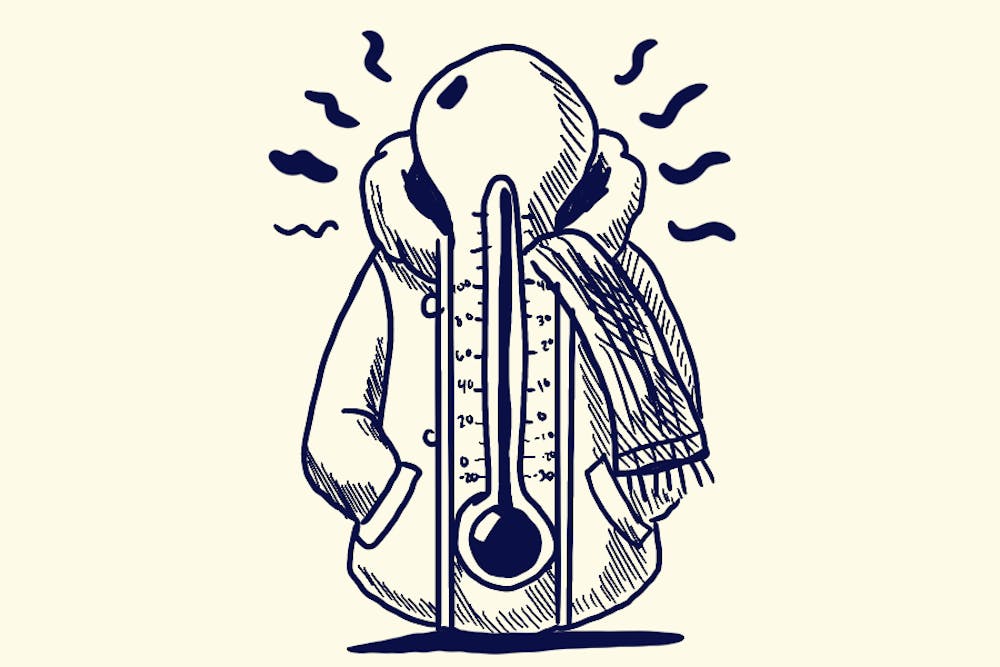There were 113 straight days where Phoenix's temperature was over 100 degrees, a record-breaking summer in the state. Students and climate experts explain how this weather and the issue of climate change is influencing the November election, and how students can participate in the conversation.
"There is a big message being sent that it is past time for us to act on climate," Lori Lodes, the executive director of Climate Power, said.
Mia Monreal, a sophomore studying community health, is scared of the rapid progression of climate change and is voting with the issue in mind.
"It will definitely affect the kids, your kids, your future, the future of others," Monreal said.
Lodes echoed the sentiment, saying young people have only seen a world where the climate is changing.
"There should be alarm to that, and there also should be accountability for elected leaders to recognize what young people do, that we can't wait on this," Lodes said.
People ages 18 to 29 and over 65 are more likely to view climate change as a top priority, while people in the middle value it the least, according to a study from the Pew Research Center.
"When you think about it (climate change) long-term, this is the world that we're growing up in and our future generation is going to grow up in," Josh Laggis, a junior studying photography, said. "It's a very crucial time."
READ MORE: Hot, hotter, hottest: How the University is combating Arizona's historic heat
Christopher Boone, a professor at the School of Sustainability, said people are willing to take action against climate change "when it affects them directly, and it affects them now," but they are less likely to change their behavior when they are looking at consequences that could take place in the future.
Boone said people may be motivated to act against climate change during the hot summer months, but once it gets cooler again, people get "heat amnesia," which could take place around the time of the election.
"Come November, people will forget how hot the summer was, and then think that it's not a priority," Boone said.
Laggis, who is from the East Coast, said he is also concerned with the surge in hurricanes that took place in Florida in late September and early October this year.
"I've been experiencing those hurricanes getting stronger and stronger every year," Laggis said. "It's almost to the point where it's unbearable."
Laggis also has family near where the hurricanes took place and was trying to call them during the storms to make sure they were okay.
Hurricane Helene and Hurricane Milton were record-breaking, with Helene being responsible for over 200 deaths and Milton being the most rapidly intensifying hurricane since 2005.
"That exponential growth of the severity of climate change is definitely what scares me the most," Laggis said. "If nothing is done soon, it's going to become overwhelming."
Former President Donald Trump and Vice President Kamala Harris have approached the climate crisis differently throughout their political careers.
In 2017, Trump announced his decision to withdraw from the Paris Climate Accord — an international treaty meant to reduce greenhouse gas emissions among all the countries committed — because of the "financial and economic burdens the agreement imposes on our country," Trump said.
Hunter Tierney, a sophomore studying communication and a board member of the College Republicans at ASU, said the economy is a major topic voters look at against an issue like climate change.
"If there was a clear solution that we could do to help reduce climate change, I think it would be done," Tierney said in defense of Trump's actions with the Paris Climate Accord.
Laggis said the Biden-Harris administration has made progress on the issue of climate change.
On President Joe Biden's first day in office in January 2021, he rejoined the Paris Climate Accord, and signed the Inflation Reduction Act into law in 2022 — a plan to "cut the pollution that is fueling the climate crisis and driving environmental injustice."
Boone and Laggis both said voting is critical in changing the future of climate change.
READ MORE: A green guide to ASU
"We are seeing how unnatural and how extreme the impacts of climate change can be," Lodes said. "The one thing that we can do that will have a lasting impact for generations to come is to vote."
Laggis said young people have the ability right now to use their vote in Arizona, a battleground that could determine the election.
"We have over 70,000 students here at ASU," Laggis said. "Those numbers can swing a state."
How Arizona chooses to mitigate the effects of climate change in-state can determine how the country decides to engage in the issue nationwide, Boone said.
"Decisions that are made here can have a positive ripple effect across the country and around the world," Boone said. "We've been forced in some ways, but it's also an opportunity for us to give back."
Edited by George Headley, Abigail Beck and Natalia Jarrett.
Reach the reporter at ehprest1@asu.edu and follow @ellis_reports on X.
Like The State Press on Facebook and follow @statepress on X.
Ellis is a sophomore studying journalism and mass communication. This is her first semester with The State Press. She has also worked at Arizona PBS and Blaze Radio.




